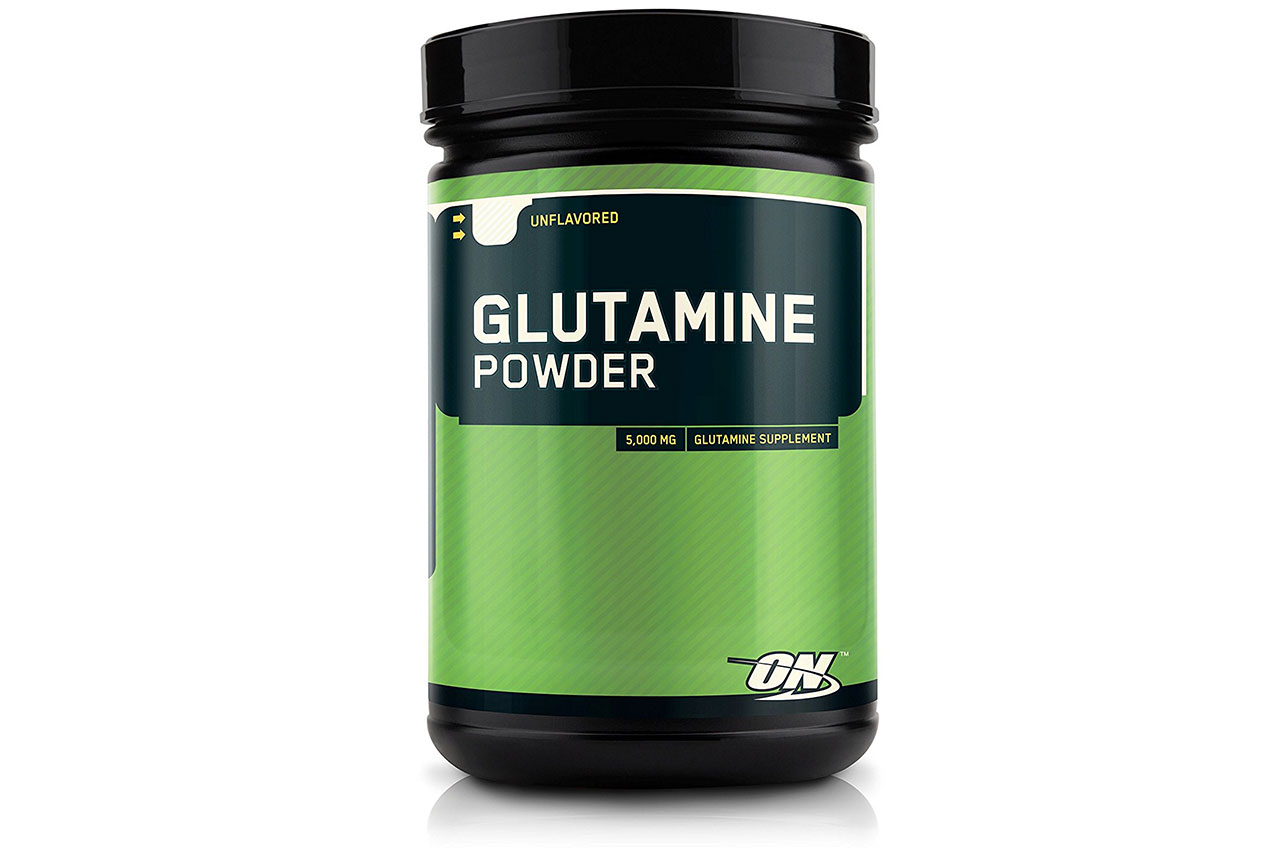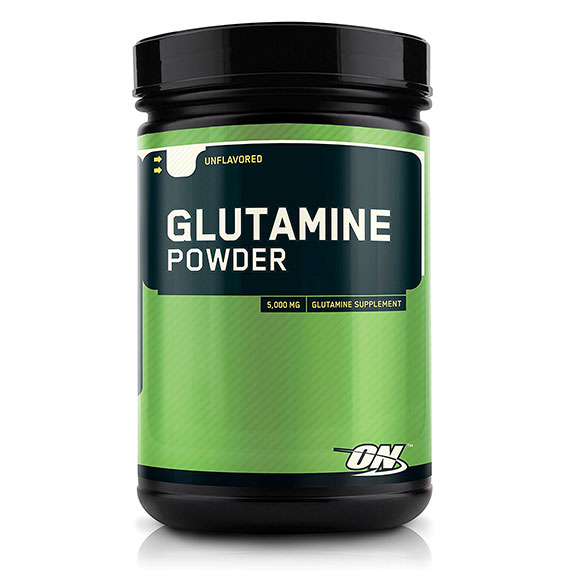Glutamine is the most common amino acid in the body and as such, it is rarely in sufficient amounts. The variety of bodily processes it is involved in, often makes the body choose different sources of this substance for one metabolite pathway or another.
What is glutamine?
L-Glutamine (glutamine) is a non-essential amino acid, which is synthesized in different organs of the body, like the liver and volitional musculature.
Glutamine, as we said is the most common amino acid in the blood plasma, as it makes up around 35% of it and contains 20% hydrogen in its structure which makes it the main hydrogen transmitter for the muscle cells.
This substance is mainly concentrated in the human musculature.
How is glutamine synthesized?
Usually, it is synthesized via a biotechnological path- Fermentation of an appropriate nutritional environment and bacteria.
What is glutamine’s basic physiological effect?
As we mentioned, glutamine is conditionally essential, as the body’s needs of it increase in certain diseases like cachexia.
The main roles of glutamine are:
- Being a hydrogen transmitter between the cells, along with alanine
- Being a precursor of the glutathione and nucleotides
- Regulating acidic and basic metabolism
- Support glycogen genesis
- Stimulate the production of citrulline and glycine
Why and how to take glutamine?
Researches show that after an intense workout, the glutamine levels in the body drop down with up to 50%. This means that glutamine is best taken post workout.
This is when it is most viable and supports the recovery of muscle glycogen, by quickly and easily turning into glucose, without increasing blood sugar and insulin, while also strengthening the protein synthesis and the production of hypertrophy-responsible hormones.
For fitness trainees, this supplement is best taken around 30 minutes after a workout.
Other physiological effects of glutamine
In the brain, glutamine is the source for glutamate production, as it gathers all the excess ammonia.
Glutamine is also in the content of glutathione- The strongest antioxidant in the human body.
Around 13% of the glutamine circulating in the organism, is stored in the liver and intestine enterocytes, where it is used as a source of energy.
Proven benefits in people
- Regular glutamine intake is proven to decrease ammonia levels, while excessive intake may lead to their significant increase, which is also more strongly pronounced in elderly people.
- Glutamine increases the aerobic capacity during physical activity, for people with angina.
- Potential benefits for treating intestinal diseases, inflammations and digestion improvement. Glutamine also supports protein synthesis in the intestines.
- Oral glutamine intake significantly improves cardiac abnormalities, in patients who have underwent a heart surgery.
- Contrary to popular opinion, oral glutamine intake does not really support muscle growth significantly. However, if injected, it increases protein synthesis in the musculature.
- Potential benefits for endurance improvement. This effect of glutamine is based on two mechanisms- First of them is the transformation of glutamine into glucose, which is used as fuel in the body. The second mechanism is linked to decreasing ammonia levels, which improves the cardio-vascular activity.
- Injecting glutamine significantly decreases the catabolism of the musculature.
What are the optimal doses?
It is considered that the optimal glutamine dose is 0.2g per 1 kilogram of bodyweight, however, doses of up to 0.3 g per kilogram are proven to be safe.
Sometimes, for short term intake, the recommended doses are up to 0.5 g per kilogram.
A dose of 2 grams, half an hour after a workout causes an increase in the human growth hormone and a tad bit weaker increase of the insulin and testosterone.
Side effects of glutamine
Glutamine in particular has no significant side effects, but just like everything else, if taken in excessive quantities it may lead to certain negative effects like stomach discomfort.
Researches show that the upper limit of intake is 0.75 g per kilogram of bodyweight, meaning that someone who’s 70 kg would take about 50 grams daily.
How is glutamine metabolized in the organism?
After going through the digestive system, glutamine metabolizes down to citrulline, arginine, glutamate and proline.
Glutamine is not known to be absorbed quickly, as a little part of it reaches the serum.
A research shows that free glutamine has the same bioactivity levels as glutamine in food, meaning the best way of getting this amino acid, is through food.
So, here comes the question-
Which foods contain the highest amounts of glutamine?
Glutamine is most concentrated in foods high in protein, like bean plants, meat, fish and dairy products.
The richest source of protein is veal meat, as it makes up about 5% of the content.
Other sources are pasteurized milk, white rice, corn and eggs.
What supplements contain glutamine?
Glutamine is an ingredient for many supplements, which may be in the form of pills, powder or a drinkable liquid.
It can also be found in amino acid complexes, protein concentrates and even in the form of pure glutamine powder, which most often is unflavored.
Glutamine is also among the content of some complex supplements, but in smaller amounts. Besides glutamine, other substances like L-Carnitine and creatine can be found in those supplements.
Supplements with added glutamine are some of the most famous amino acid formulas like Scivation’s Xtend and BCAA blast.
Most of these supplements are meant for oral use and are offered in the form of powder, liquid or tablets.
What can we combine glutamine with?
There’s no scientific base that supports and recommends the combination of glutamine with other supplements.
Practice shows that with sports progress in mind, glutamine can be added to different products like creatine, protein and branch chained amino acids.
To maintain the digestive tract, glutamine can be combined with probiotics and fibers.
Conclusion
As a conclusion, we can say that just like any other supplement, glutamine is no magic and should definitely be taken in moderate amounts of up to 0.5 grams per kilogram of body-weight.
Glutamine will help you increase hormonal levels and protein synthesis, meaning that it is best taken after a workout.
Keep in mind that no supplement can replace proper nutrition, so get your nutritional plan in check first and only then, start considering supplementing.


